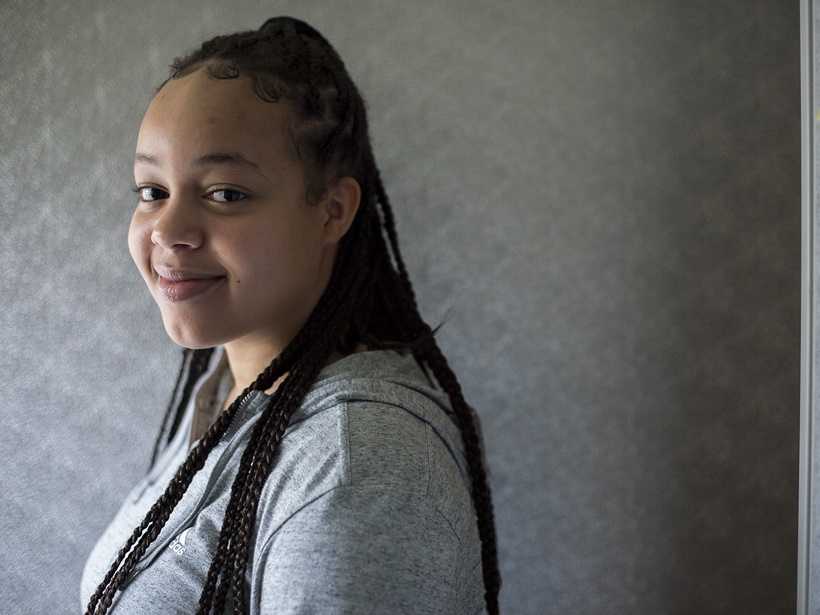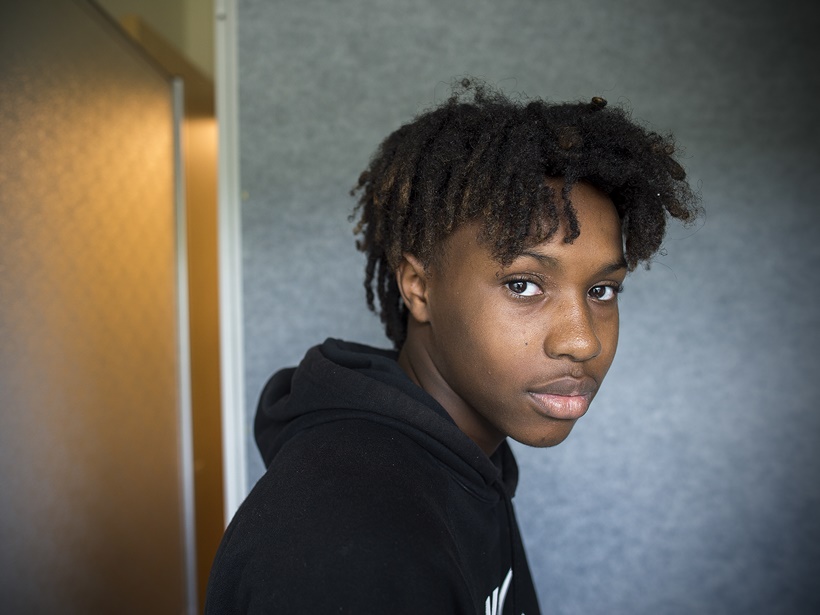Girls said they were mostly treated fairly compared with boys. Yet when it came to their bodies, girls said they did not feel equal, reports Claire Cain Miller.
Girls have been told they can be anything they want to be, and it shows. They are seizing opportunities closed to previous generations — in science, math, sports and leadership.
But they’re also getting another message: What they look like matters more than any of that.
Boys seem to have been largely left out of the conversation about gender equality. Even as girls’ options have opened up, boys’ lives are still constricted by traditional gender norms: being strong, athletic and stoic.
These are findings from a new nationally representative poll of 1,000 children and adolescents 10 to 19, along with other research on this age group, which is not surveyed often. They show gender attitudes of a generation on the verge of adulthood.
In the survey, conducted by PerryUndem, a research and polling firm, a majority of girls said sexism was still a problem — yet in many ways, they felt empowered. Girls were slightly more likely than boys to say being a leader was a very important life goal, evidence of a significant shift in gender expectations.
“I’m all in for leadership,” said Isabelle Reksopuro, 13, one of eight eighth graders at Happy Valley Middle School in Happy Valley, Oregon, we interviewed this week. She is captain of the debate team and a member of the student council, and wants to become a scientist. “In this school, girls and boys have equal opportunities; it just depends on your talent.”
When boys and girls were asked about their goals and aspirations, the responses were similar. Three-quarters said having a successful career was very important. A third of respondents or less, of either gender, said marrying or having children was a very important goal.
Girls were as likely as boys to say math or science was their favorite subject, and to have considered running for office. They said they were mostly treated fairly compared with boys.
Yet when it came to their bodies, girls said they did not feel equal. About three-quarters of girls 14 to 19 in the survey said they felt judged as a sexual object or unsafe as a girl. By far, they said society considered physical attractiveness to be the most important female trait — a view that adult women share, surveys have found. Girls were also more likely than boys to say they felt a lot of pressure to put others’ feelings before their own.


About half said they hear boys making sexual comments or jokes about girls daily, including a quarter of girls 10 to 13. One-third of teenage girls have heard these comments from men in their families.
Black and Latino adolescents, the survey found, are more likely to have progressive attitudes about gender equality, but they’re also more likely to hear sexual comments from peers, and to feel pressure to be attractive or strong.
The eighth-graders (who were not part of the survey) in Happy Valley, a middle-class suburb east of Portland, described equal opportunities at school for boys and girls: Girls far outnumbered boys on the student council, and a few even played on the football team.
The middle-school girls were unanimous in what they valued most in themselves: intelligence and confidence. But they also agreed that society placed the most value on their looks, and mentioned pressure to look attractive online and the risk of predators on social media.
“As long as I’m confident in myself, I can put myself out there and other people can take it or leave it,” said Sally Ayach, 13, a gymnast who excels at math and wants to be a lawyer.
Boys, however, don’t always see it that way, she said. “If they see a girl with a nice body, they’re going to go after seeing that body,” she said. “It’s like who can get the most girls.”
In the survey, 81 percent of girls 14 to 19 said they had at least one friend who had been asked by a boy for a sexy or naked photo. “They ask all the time,” Sally said. “But I’m like, no thanks, I’m not like that.”
Deborah Tolman, a psychology professor at the City University of New York who researches adolescent sexuality, said: “This is the contradiction we put in front of girls: You should be confident and do well in school and do athletics, but you’re supposed to also be a good sex object at the same time.”


Isabelle said romance was the exception to the equality she felt at school and in life. Recently, she rejected a boy who had been flirting with her on text and social media.
“He got ridiculously mad; he called me names, used slurs,” she said. “When we get rejected, we don’t explode just because they don’t like us back. Guys just feel more privileged.”
Adolescents feel these pressures worldwide, found the Global Early Adolescent Study by Johns Hopkins and the World Health Organization. “We were stunned — and I’m not easily stunned, as a clinician working 40 years with adolescents — at the hyper-sexualization of young kids,” said Robert Blum, the study’s principal investigator and a public health professor at Johns Hopkins.
The continuing study is of children 10 to 14 in poor urban areas in 15 countries, and gender norms were remarkably similar. “Whether you’re in Hanoi or Shanghai or Baltimore, you understand the script,” Blum said. “You get the messages of girl vulnerability and girl weakness and boy strength and boy independence.”
Traditional ideas about boys still run strong in the United States, found the new survey, which was commissioned by Plan International USA, an organization for children’s rights and girls’ equality. It polled teenagers and children of adults who participate in the University of Chicago’s NORC AmeriSpeak panel.
Boys said strength and toughness were the male character traits most valued by society. Three-quarters said they felt pressure to be physically strong, and a majority felt pressure to play sports.
Asked what society expects boys to do when they feel angry, the largest shares said they were supposed to be aggressive or be quiet and suck it up. When they felt sad or scared, they felt pressure to hide those feelings or to be tough and strong instead. Girls were more able to express themselves by crying, screaming or talking about their feelings, respondents said.
Half of boys said they’d heard men in their family make sexual jokes or comments about women; those boys were more likely to feel pressure to be tough and play along with sexism. An even bigger share, 82 percent, said they had heard someone criticize a boy for “acting like a girl.”


This contributes to the feeling among girls that they’re undervalued and objectified by boys, researchers said. Pressures on boys can also leave them with low self-esteem and more likely to be victims of violence or accidents.
“It’s not just girls who get hurt,” said Barbara Risman, a sociology professor at the University of Illinois at Chicago, who studies young people’s gender attitudes. “I call it boys policing each other to be boyish, particularly when showing emotions or wanting to do something considered feminine, like volleyball or ballet. They have the sense that they can’t stray a bit.”
In Happy Valley, boys said the qualities they valued most in themselves were ambition and intelligence — but they were deeply aware that society valued male strength.
“There are a lot of things that ‘real men’ would do that I wouldn’t, like anything particularly dangerous physically, and sports,” said Muyang Yan, 12, who started a school coding club and wants to be a computer scientist.
Sullivan McDaniel, 13, who’s on the student council and the lacrosse and football teams, has played sports since age 3. “I don’t really show a lot of emotion, but I get emotional like in sports; I get fired up,” he said. “If I’m angry, I go to the gym or I go to the high school and lift.”
There are some signs that recent movements to end sexual harassment might be influencing teenagers’ attitudes.
In the survey, three-quarters of adolescents had heard of MeToo. A majority of girls, and one-third of boys, say it has made them feel able to tell someone if they were harassed or assaulted.
“I have more of an ability that if that did happen to me,” said Hiree Felema, 13. “There’s not a chance of me being quiet about it.”
Source: Read Full Article





